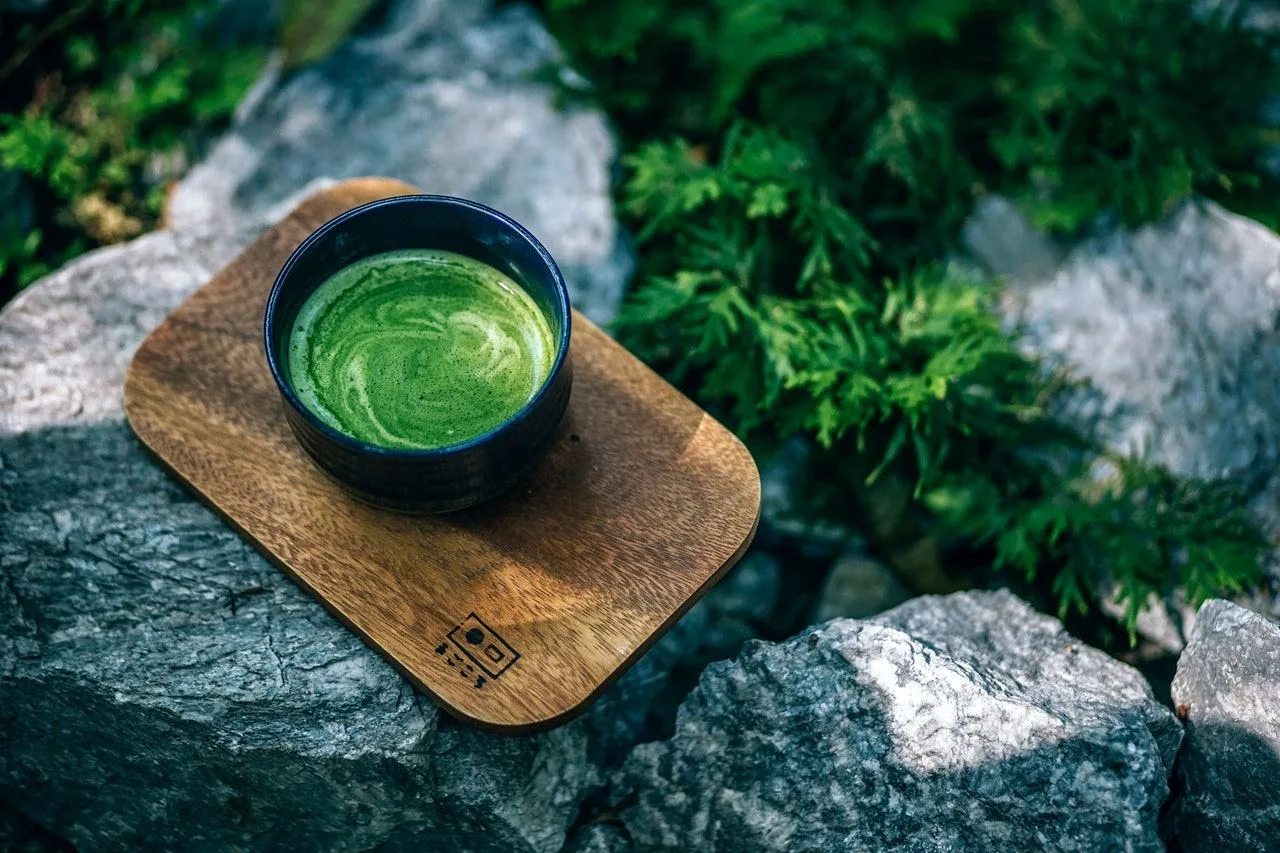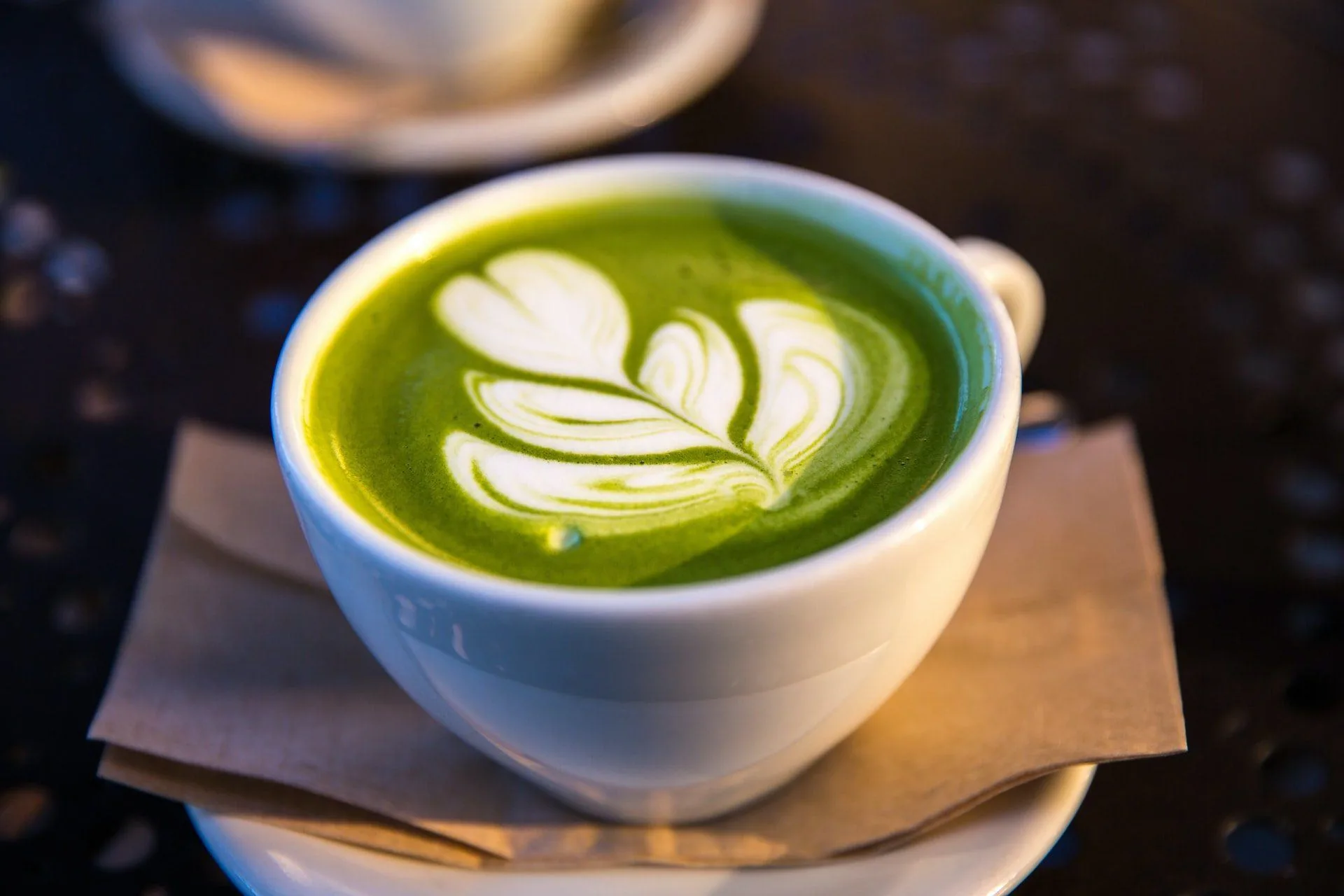When it comes to longevity drinks, chances are that green tea will top the list. However, in recent years matcha has significantly grown in popularity, with many looking at it as the ultimate health elixir. Ironically enough, green tea and matcha are often used interchangeably. So, is green tea and matcha all the same? If not, which is the best drink for your longevity?
Matcha vs Green Tea
Yes, matcha and green tea do come from the same plant, but the main difference is how they are processed.
With green tea, the tea leaves are heated and then dried. However, with matcha, the same leaves are crushed into a powder, which is then used to make matcha tea. Therefore, since matcha contains the entire tea leaf, many people see it as the superior option as it is more concentrated, which is why it has a higher caffeine content and is often more expensive than green tea.
What are the benefits of green tea and matcha?

Photo by Laårk Boshoff on Unsplash
Packed with antioxidant power
We all know that antioxidants are exactly what we need if we want to fight off free radicals, which are compounds responsible for harming our health. Luckily for us, both matcha and green tea are packed with antioxidants, particularly catechins which have potent antioxidant properties.
The main, and incredibly powerful, catechin is epigallocatechin gallate (EGCG). According to research, EGCG has been found to help fight inflammation, possess cardioprotective properties as well as potentially promote DNA repair.
So, which of the two drinks will give you a bigger antioxidant boost? Well, according to research, matcha contains at least 3 times the amount of EGCG as popular varieties of green tea and this is because it uses the entire tea leaf.
Protect your heart health
Considering that heart disease is the leading cause of mortality worldwide, you might want to do your heart a favor and drink more green tea or matcha.
According to an umbrella review that delved into the relationship between tea intake and heart health, the consistent intake of tea (particularly green tea and black tea) at levels around 2cups per day seems to have the potential to decrease CVD risk and progression. These findings are mainly attributed to the antioxidants found in green tea, which we know are in even higher amounts in matcha.
Helps with weight management
When it comes to weight management, green tea is often seen as the best tool to help. So, can green tea truly help with weight loss?

Photo by NipananLifestyle.com
One animal study found that green tea helped to combat obesity and health risks in mice. A human study also found that green tea supplements helped alter body weight in obese individuals.
In regards to matcha, one study found that individuals who consumed a matcha drink before a brisk walk ended up experiencing improved fat burning during that walk.
With all that said, there is no magic elixir when it comes to weight management. Therefore, if you really want to make a difference, then you need to consume a healthy and balanced diet and stay active.
Can calm you down
So, which is the best drink to start your day with?
Both green tea and matcha have amazing benefits for the body, with matcha containing more of the beneficial nutrients as a result of the brewing process.
However, this also means that matcha contains more caffeine than green tea, and this may not be as appealing to everyone.
Regardless, whether you’re starting your day off with matcha or green tea, just know that you’ll be doing your body and health a favor.



![women [longevity live]](https://longevitylive.com/wp-content/uploads/2020/01/photo-of-women-walking-down-the-street-1116984-100x100.jpg)










